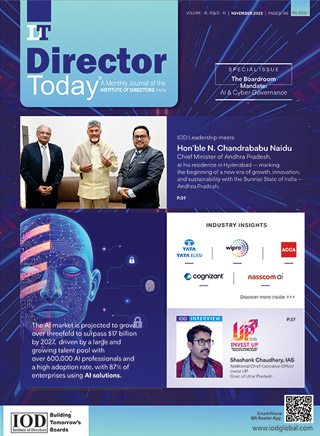Fiduciary Duty in a Warming World: Why COP30 Demands the Director's Action

The road to COP30 in Belém, Brazil runs through the Boardroom. As world leaders prepare to meet in the heart of the Amazon in 2025, the setting is a stark reminder: the old models have not succeeded. This conference cannot be another festival of pledges. It must be the moment corporate responsibility is radically redefined, moving from ESG as a reporting exercise to ESG as a fundamental operational mandate.
Climate change is the defining challenge of our era. It is no longer a distant threat; it is here, and it is accelerating. Rising seas are swallowing coastlines, heat waves are shattering records, draughts and floods are devastating livelihoods, and biodiversity loss is weakening the very systems we depend upon for food, health and water.
The timeline is no longer abstract. COP30 is the critical checkpoint where nations must present new, ambitious Nationally Determined Contributions (NDCs). These are the concrete plans to meet the Paris goals. But these government pledges are meaningless without the private sector's active partnership. The NDCs due in 2025 are not just government homework; they are a direct blueprint for corporate action, signalling where regulation, investment, and market expectations are aimed.
This demands that companies move beyond voluntary frameworks. True accountability means embracing technology not for PR, but for radical transparency—using blockchain to trace carbon to its source and AI to model risk in real-time. It means aligning capital expenditures and supply chains with the decarbonization pathways outlined in the new NDCs.
The actions we take, or fail to take, in the next decade will determine whether we can keep global warming within limits. Past actions have shown limitations of governments; international agencies and fund providers. Mitigation of adverse impacts after effects of climate change needs quick response at local levels and appropriate technology application. These actions have been effectively delivered by businesses. Boards have to focus its attention on climate change issue and develop adaptation and mitigation measures. Their alternatives can at best become important for deliberations at international conferences of government parties and businesses and NGOs separately.
The gathering in the Amazon presents a historic choice. Corporations can no longer be passive subjects of regulation. To be credible, they must be active architects of the solution, leveraging their scale, innovation, and capital to make the 2025 NDCs achievable.
COP30 must be this catalyst. The corporate leaders of tomorrow will be those who use their immense power to help solve the crisis, not just report on it. The world is watching Belém. It's time for business to move from the audience to the main stage, not with mere promises, but with proven, planet-saving action.
Author
Owned by: Institute of Directors, India
Disclaimer: The opinions expressed in the articles/ stories are the personal opinions of the author. IOD/ Editor is not responsible for the accuracy, completeness, suitability, or validity of any information in those articles. The information, facts or opinions expressed in the articles/ speeches do not reflect the views of IOD/ Editor and IOD/ Editor does not assume any responsibility or liability for the same.

 Quick Links
Quick Links
 Connect us
Connect us




 Back to Home
Back to Home































